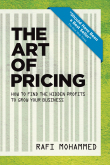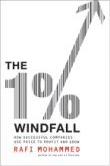Is a Gas Tax Holiday Really Going to Lower Prices at the Pump?
Just to be clear, this blog is in no way about politics. PricingforProfit.com is strictly about pricing…24/7. A recent issue in the U.S. presidential campaign involves offering a gas tax holiday. Both Republican and Democratic candidates are advocating repealing the 18.4 cent per gallon gas tax (24.4 cents for diesel) for the summer. While certaintly attractive sounding, the key question is: will this tax relief result in lower prices at the pump?
No economist (who are trained to understand how tax policy affects prices) is on record as being in favor of a gas tax holiday. In fact, 150 economists (including 3 Nobel laureates) have signed a letter opposing the holiday. Economists believe that if this tax goes on hiatus, gas prices will remain the same. As a result, oil companies, instead of consumers, will “pocket” the tax. Noted Princeton economist Paul Krugman opines: “So it’s Econ 101, the tax cut really goes to the oil companies.”
Discussing gas prices is a hot button issue for most of us. It’s frustrating to watch prices rise weekly and hear oil companies report record profits. To take emotion out of this discussion, let’s use a simple non-gas example to illustrate the economics of this issue. Suppose it’s Memorial Day, you have 100 charcoal grills to sell, and there’s a $1 tax per grill sold. Shortly after setting up shop on a busy street corner, you attract 200 interested customers who are all chanting “what’s the price?” Assessing the crowd, you determine that $20 is the market clearing price. By market clearing price, I mean that at $20 you’ll sell all 100 grills and there won’t excess demand – sure, some people may be willing to pay less than $20, but there won’t be any remaining customers saying “I would have paid $20.” At a market clearing price ($20), demand exactly equals supply. So after selling all 100 grills, you’ll have grossed $2,000. After paying $100 in taxes ($1 per grill) – you’ll have earned $1,900 before paying costs.
Now suppose you are in the same scenario – Memorial Day, 100 grills, and the same 200 potential customers. But in this case, the government announces a Memorial Day grill tax holiday – now you don’t have to pay the $1 per grill tax. Since consumers make their purchases based on value, not cost, this tax holiday has no relevance on their willingness to pay. So again, the market clearing price will be $20. You’ll have grossed $2,000. Since there is no tax, this ($2,000) will be your total revenue before paying costs. Notice how the forgone $1 per grill tax becomes a windfall profit for you.
From this simple example, you can extrapolate the rationale why economists believe a gas tax holiday will result in unchanged gas prices and more profits for oil companies.
So what do you think? Are economists right? Next week my blog will be on actual empirical results of a gas tax holiday when Illinois and Indiana suspended their state 5% gas tax during summer 2000.
Readers' Comments on This Blog Entry
And all this time I thought I was missing something. I'm driving in the car - listening to NPR (sounds like that should be a lyric huh?) and wondering what I didn't get that THEY got. I just couldn't figure out how consumers would benefit. The assumption (it seems) is that the gas companies would LOWER the price by the amount of tax. And I'm thinking, why would they do that? Thanks for pointing out the reality behind the situation.





I completely agree with the economists. The idea of a gas tax holiday is idiotic without even dealing with who ends up with the profit. I honestly haven't talked to even one person who supports this idea. 10, 20, 30 years from now, people will look at how we floundered around trying to figure out how to be able to afford gas and how countries prepared for war over the last barrel of oil, and people will wonder just how stupid we were. By the way, if you want a big reaction, bring up the $15 charge for one checked bag on American. For Pete's sake, just add another $15 fuel charge rather than creating chaos on those already chaotic airliners. I can't even imagine what people will be trying to carry on in the future. Or what will happen when the bags for which there is no room in the bins have to be pulled off and put into the cargo area. That won't take much time. And how do they collect their $15? Like I said - chaos.